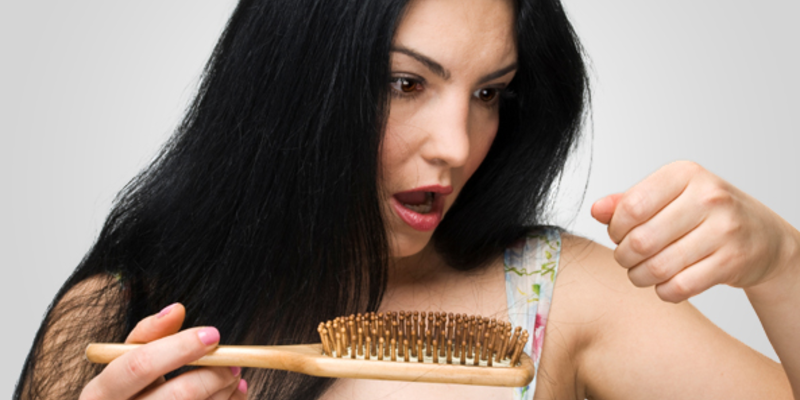Mark my words, it's almost always treatable. Some women do indeed have the gene for baldness, but genes are not the final word—remember the concept of epigenetics that I wrote about last time; specifically, what we eat, what we drink, what we smoke, and what we think can change the expression of our genes permanently, and for successive generations. by altering our life and health choices, we can alter the activity of our genes and turn them on or off.
When patients who are experiencing hair loss are questioned further, most have symptoms of burnout, such as insomnia, anxiety, brain fog, loss of libido, slowed metabolism, weight gain, and quite often, depression. Rather than seeing the skin and hair in isolation, I like to approach their restoration by optimizing hormones, sleep, and nutrition, which can ameliorate not just the hair and skin problems, but can improve other symptoms as well.
Typically, lab values for thyroid, progesterone, estrogen, and other health parameters may be in the “normal range.” This means in a traditional medical model, no therapy will be offered. I liken the “normal range” to a passing grade which has been curved to assure as many people as possible will pass. And within that range, we have As and we have Ds—where would you rather be?
Truly, “normal values” are an average of everybody’s values, not the healthiest ones among us. And, the ranges are skewed down each decade to reflect the average decline of age. We feel, look, think, and function better when our hormone and nutritional parameters are in the “optimal range,” or the upper end of the spectrum.
While it might seem that I am stepping beyond the bounds of dermatology with this hormonal solution for hair loss, here’s the bottom line: it works. Supplementing with hormones, vitamins, and minerals helps preserve hair and allow it to grow back if it has been compromised. Not only does this approach work, but it is also safe (I covered this in Part II of my A-Game series) and meanwhile, it’s protective against other degenerative changes of aging. Not a bad deal: baldness to badass in four months or less.

